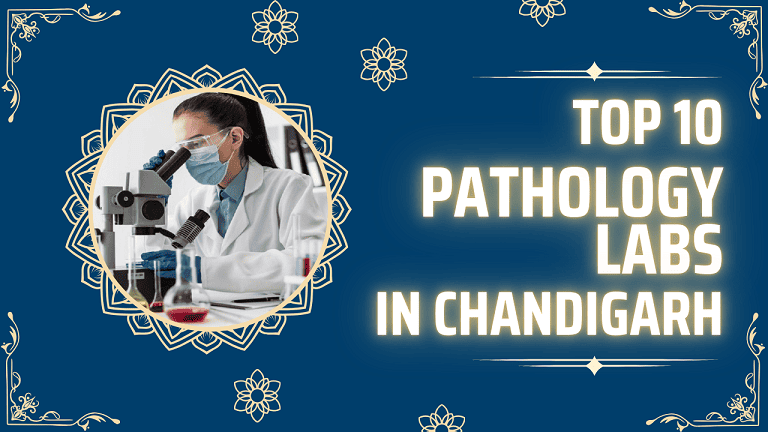Top 10 Pathology Labs in Chandigarh
FAQ
What is the function of a pathology laboratory?
A pathology laboratory analyzes blood, urine, and tissue samples to diagnose diseases. It provides crucial information like blood counts, clotting factors, and electrolyte levels. These labs play a vital role in clinical medicine by offering detailed insights into a patient’s health status.
Their findings help doctors make accurate diagnoses, monitor disease progression, and adjust treatment plans. Pathology labs are essential for routine check-ups and complex medical investigations in modern healthcare.
What tests are done in the pathology lab?
Pathology labs conduct various tests to study diseases and their causes. These include blood tests, which can reveal multiple health indicators and analyses of urine and stool samples. Tissue biopsies are also examined to detect abnormalities at the cellular level.
The tests can diagnose conditions, monitor chronic diseases, check organ function, and screen for genetic disorders. Pathology testing is crucial for comprehensive patient care.
What degree is needed for pathology lab?
Opening a pathology lab in India typically requires a BSc degree or diploma in a relevant field. MBBS and MSc holders can also establish laboratories. However, obtaining certification and licensing from the Medical Council of India (MCI) is crucial.
This ensures lab operators have the qualifications and adhere to established standards. Continuous education and skill updating are essential in this rapidly evolving field.
How much does a pathology lab cost in India?
According to the Confederation of Indian Industry (CII), setting up a small pathology lab in India typically costs between INR 10 lakhs and INR 20 lakhs. This investment covers essential equipment, space rental, and initial operating costs.
The exact amount can vary based on location, scale of operations, and type of services offered. More extensive or more specialized labs may require significantly higher investment.
What is pathology used for?
Pathology is a medical science focused on studying and diagnosing diseases. It involves examining surgically removed organs, biopsy samples, bodily fluids, and sometimes whole bodies during autopsies.
Pathologists play a crucial role in healthcare by providing detailed analyses of tissues and fluids, helping determine diseases’ nature and extent. Their work is essential for accurate diagnosis, treatment planning, and understanding of disease mechanisms.
How long do pathology results take?
Pathology results typically take about a week, but timing can vary. Some reports may be ready sooner, while others might take longer depending on the complexity of the tests or the need for additional analysis.
It’s essential to ask your healthcare provider for an estimated timeline. Longer wait times don’t necessarily indicate negative results; thorough analysis ensures accurate findings.
What are the criteria for pathology?
To become a pathologist in India, one must complete an MBBS or a diploma in medical science after passing 12th grade with at least 60% marks from a recognized board.
Following this, aspiring pathologists must pursue specialized pathology training at an accredited medical college and hospital. The process involves rigorous education and practical training to develop expertise in diagnosing diseases through laboratory analysis.
What tests are done in pathology?
Standard pathology tests include a Complete Blood Count (CBC) to check anaemia and infections, a Lipid Panel to check cholesterol levels, a Fasting Glucose Test to screen for diabetes, and Thyroid Function Tests.
These analyses provide crucial information about a patient’s overall health status, help diagnose various conditions, and guide treatment decisions. Pathologists may also perform specialized tests depending on specific medical concerns or symptoms.
Can a pathologist treat patients?
Pathologists typically don’t directly treat patients but play a crucial role in patient care. They analyze tissue samples, blood, and other bodily fluids to diagnose diseases and provide essential information for treatment planning.
While they may not interact directly with patients, their expertise significantly influences medical decisions. In some cases, pathologists may consult with treating physicians to explain test results or discuss diagnostic findings.
How are lab tests done?
Lab tests involve analyzing samples of blood, urine, or body tissues. Technicians or doctors examine these samples and compare results to established normal ranges.
However, ‘normal’ can vary between individuals due to age, gender, and overall health. Depending on the specific test required, the analysis process may involve various techniques, from simple visual examinations to complex chemical analyses or genetic testing.



